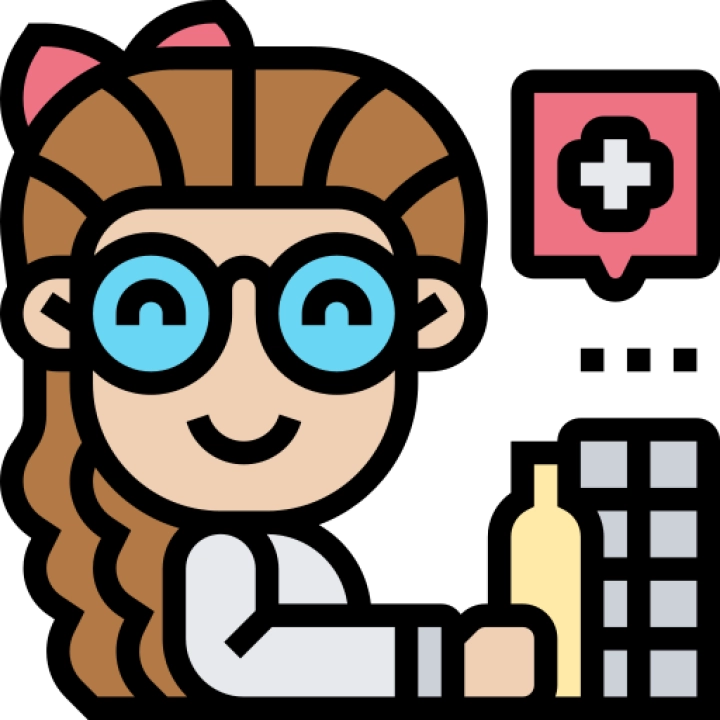College: Graduate School of Health Sciences
This program prepares students for careers in psychiatric nursing, focusing on the care and treatment of individuals with mental health disorders. Students develop practical nursing skills and theoretical knowledge to support patients with psychological, emotional, and behavioral challenges. Graduates are prepared for roles in psychiatric hospitals, mental health clinics, and community health centers.
Learning Objectives:
- Understand the basics of psychiatric nursing and mental health disorders.
- Develop skills in psychiatric assessment, diagnosis, and treatment planning.
- Learn crisis intervention techniques, psychotherapy, and medication management.
- Explore principles of ethical practices and cultural competence in mental health care.
- Analyze challenges and opportunities in psychiatric nursing.
- Develop empathy, communication, and problem-solving skills for effective nursing practice.
Main Curriculum:
- Introduction to Psychiatric Nursing
- Overview of fundamental concepts and industry trends in psychiatric nursing.
- Basics of psychiatric nursing and mental health disorders.
- Psychiatric Assessment and Diagnosis
- Principles of psychiatric assessment and diagnosis.
- Techniques for conducting mental health assessments.
- Psychopharmacology
- Essentials of psychopharmacology and medication management.
- Techniques for administering and monitoring psychotropic medications.
- Psychotherapy and Counseling
- Principles of psychotherapy and counseling techniques.
- Techniques for delivering individual and group therapy.
- Crisis Intervention
- Essentials of crisis intervention and management.
- Techniques for evaluating and intervening in psychiatric emergencies.
- Mental Health Across the Lifespan
- Principles of mental health care for different age groups.
- Techniques for addressing age-specific mental health needs.
- Ethical and Legal Issues
- Understanding ethical guidelines and legal standards in psychiatric nursing.
- Techniques to ensure ethical and legal compliance.
- Cultural Competence
- Principles of cultural competence and diversity awareness.
- Techniques for addressing cultural issues in psychiatric nursing.
- Practical Training in Psychiatric Nursing
- Real-world nursing experiences in psychiatric settings.
- Application of learned skills in practical scenarios.
- Capstone Project
- A comprehensive project applying skills in psychiatric assessment or psychotherapy.
- Presentation of a polished project or case study in psychiatric nursing.
Assessment Methods:
Psychiatric assessment reports, psychopharmacology plans, psychotherapy session plans, crisis intervention reports, mental health projects, ethical practice analyses, cultural competence projects, practical training reports, capstone projects, and clinical evaluations.
Recommended Textbooks:
- "Psychiatric Mental Health Nursing" by Mary C. Townsend.
- "Psychopharmacology: Drugs, the Brain, and Behavior" by Jerrold S. Meyer and Linda F. Quenzer.
- "Cognitive Behavior Therapy: Basics and Beyond" by Judith S. Beck.
- "Crisis Intervention Strategies" by Richard K. James and Burl E. Gilliland.
- "Ethical and Legal Issues in Nursing" by Diana C. Fotschler.
- "Cultural Competence in Health Care" by Larry D. Purnell.
Prerequisites:
Basic knowledge of nursing, psychology, and mental health. Suitable for students interested in psychiatric nursing and mental health care.
Program Duration:
Typically 4 years for a bachelor's degree, including coursework, projects, practical training, and clinical rotations.
Certification:
Graduates can earn a degree in psychiatric nursing and pursue professional certifications, such as Psychiatric-Mental Health Nurse (PMHN) certification.
Target Audience:
Aspiring psychiatric nurses, mental health professionals, and individuals seeking careers in psychiatric nursing and mental health care. This program equips students with the skills to excel in psychiatric nursing, supporting careers in mental health care and related fields.

